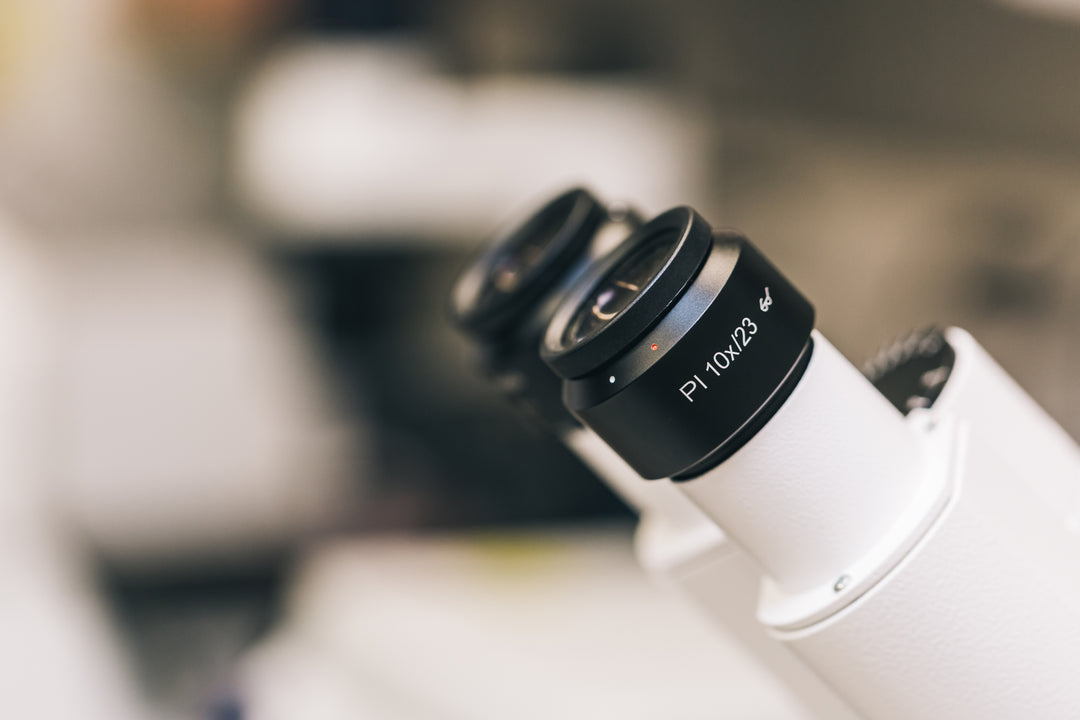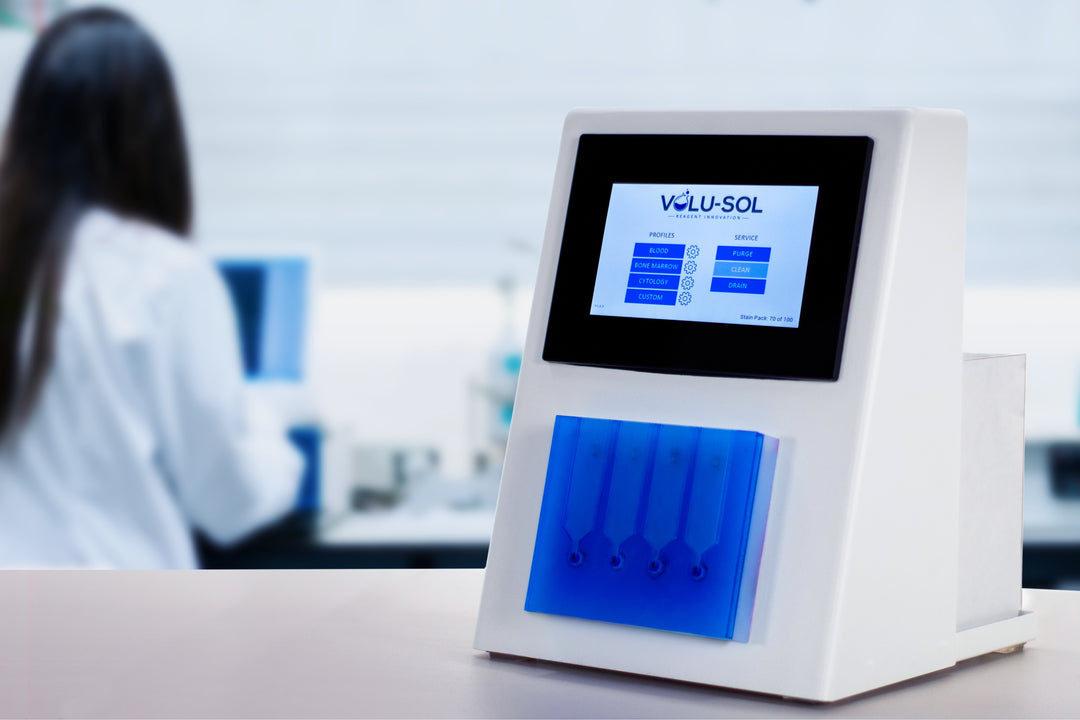The Impact of AI on Hematology Workflows: Advancing Precision and Consistency
The integration of artificial intelligence (AI) into medical laboratories is revolutionizing the field of hematology, offering new efficiencies and enhancing diagnostic accuracy. In hematology labs, AI is transforming workflows through various applications, such as automated differential counts, morphological classification of blood cells, and prediction models for hematologic diseases. These advancements are not only streamlining laboratory processes but also providing clinicians with more precise and actionable data. At the forefront of this transformation, Volusol is playing a crucial role in ensuring that these AI technologies receive the high-quality inputs necessary for optimal performance.
Automated Differential Counts
One of the primary applications of AI in hematology is the automation of differential blood counts. Traditionally, this task involved manual examination of blood smears under a microscope—a time-consuming and labor-intensive process. AI-driven systems now utilize sophisticated algorithms to analyze digital images of blood smears, identifying and classifying different types of blood cells automatically. These systems can distinguish between normal and abnormal cells with high accuracy, significantly reducing the workload for laboratory technicians and minimizing human error.
Volusol's role in this area is critical. The company's advanced staining solutions are formulated to produce high-contrast and consistent results, which are essential for AI systems to accurately identify and count blood cells. The saying "Garbage in, garbage out" is particularly relevant here; without high-quality inputs, even the most sophisticated AI systems can struggle to deliver accurate results. Volusol's commitment to "Quality in, Quality out" ensures that the AI systems used in hematology labs have the best possible data to work with.
Morphological Classification of Blood Cells
Beyond counting, AI technologies are also used for the morphological classification of blood cells. This involves analyzing the shape, size, and structure of cells to identify abnormalities that may indicate diseases such as leukemia or other hematologic disorders. AI-powered image analysis can detect subtle changes in cell morphology that may not be easily discernible by the human eye.
Volusol's Definitive DCM Automated Slide Stainer plays a pivotal role in this process. The stainer ensures that blood smears are stained consistently and to a high standard, providing clear and detailed images that are ideal for morphological analysis. Consistent staining is crucial for AI systems to accurately classify cells, as variability in staining can lead to inconsistent results and misdiagnoses. By providing a reliable and high-quality staining process, Volusol supports the use of AI in delivering accurate and reproducible results in hematology diagnostics.
Prediction Models for Hematologic Diseases
Another transformative application of AI in hematology is the development of predictive models for hematologic diseases. These models use large volumes of data, including genetic information, patient history, and laboratory results, to predict the likelihood of developing specific conditions. For instance, AI can analyze genetic markers and other risk factors to assess the probability of a patient developing leukemia or other blood disorders.
Volusol's emphasis on quality staining and sample preparation ensures that the data used in these predictive models are accurate and reliable. High-quality staining provides clear and detailed images, which are essential for the precise measurement and analysis of genetic markers and other indicators. This accuracy is vital for the development of effective prediction models, which can help clinicians make more informed decisions about patient care and treatment strategies.
Volusol's Commitment to Excellence in Hematology
Volusol's dedication to advancing the field of hematology is evident in its continuous efforts to update and refine its formulations to meet the demands of modern diagnostic technologies. By providing high-quality stains and automated slide stainers, Volusol ensures that laboratories have the tools they need to produce consistent and accurate results. This commitment to excellence supports the integration of AI technologies into hematology workflows, ultimately enhancing diagnostic precision and improving patient outcomes.
Conclusion
AI is undeniably transforming hematology workflows, bringing about a new era of precision and efficiency in laboratory medicine. By leveraging automated differential counts, morphological classification, and predictive models, hematology labs can provide more accurate and timely diagnoses, ultimately improving patient outcomes. Volusol's innovative products, including its advanced staining solutions and the Definitive DCM Automated Slide Stainer, are integral to this transformation, ensuring that AI technologies receive the high-quality inputs they need to perform optimally. As technology continues to evolve, Volusol remains committed to advancing the science of hematology and supporting the future of diagnostics.




